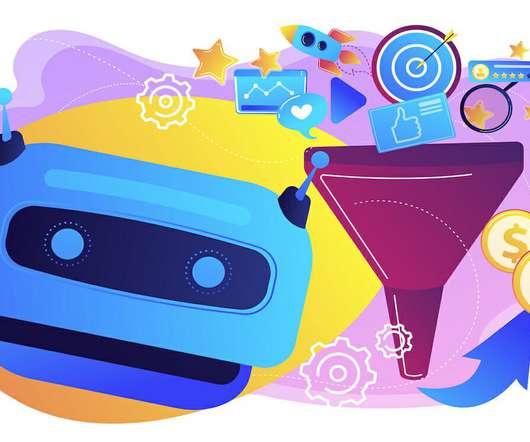12 Ways to Use Machine Learning in Digital Marketing
Single Grain
NOVEMBER 11, 2019
Gartner predicts that by 2020, around 30% of companies will be using machine learning and AI in at least one of their sales processes. Dive Deeper: The Complete Guide to Getting Started With Website Personalization. How AI Is Shaping the Future of Content Marketing and Personalization. 2) Faster Customer Service.















Let's personalize your content